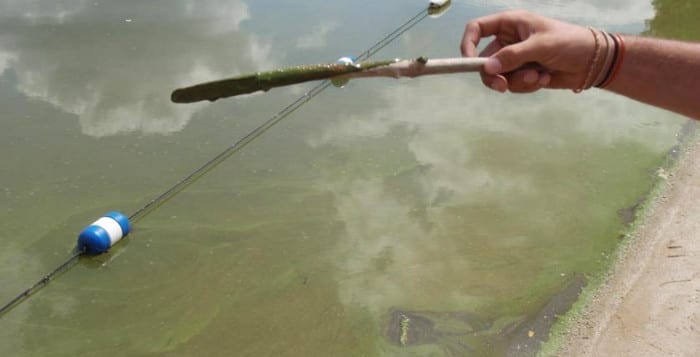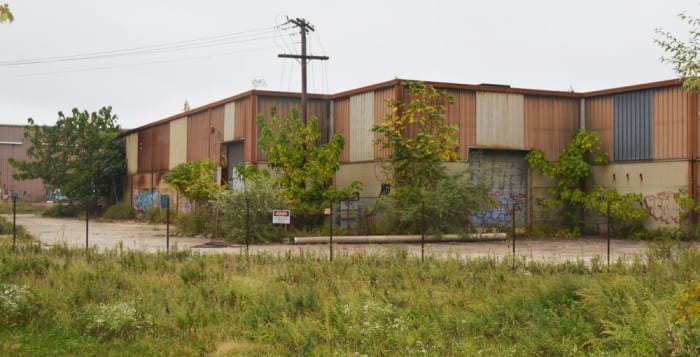Blue-green algae has made some waters in Suffolk County unsafe for residents, according to the county health department.
The New York State Department of Environmental Conservation reported recently that in seven nearby bodies of water, levels of cyanobacteria, also known as blue-green algae, have exceeded health criteria, according to the Suffolk County Department of Health Services.
While cyanobacteria appear naturally in lakes and streams in low levels, the department said, they can become abundant and form blooms that are green, blue-green, yellow, brown or red in color. The algae can appear in “floating scums on the surface of the water, or may cause the water to take on [a] paint-like appearance.” Contact with those scummy or discolored waters should be avoided.
Currently affected waters include parts of Lake Ronkonkoma; Old Town Pond, Agawam Lake and Mill Pond in Southampton; Maratooka Lake in Mattituck; Kellis Pond in Bridgehampton; and Wainscott Pond in Wainscott.
Lake Ronkonkoma Beach has already been closed to bathing for more than a week, a health department official said on Monday, because test results showed high levels of a different bacteria — E. coli, caused by fowl droppings.
The levels of cyanobacteria and “associated toxins” are particularly high at Agawam Lake, the health department said in a recent press release, so residents should avoid direct exposure to water there.
At all of the affected locations, the health department said, residents should not use the water, and should not swim or wade in it. Officials also advised residents to keep both children and pets away from the areas.
If people or pets come in contact with the affected water, health officials said, they should be rinsed off immediately with clean water. If the affected person experiences symptoms such as nausea, vomiting, diarrhea, allergic reactions, breathing difficulties or irritation in the skin, eyes or throat, he should seek medical attention.
More information about cyanobacteria is available on the county health department’s website.
To report a cyanobacteria bloom at a county beach where bathing is permitted, call the Suffolk County Department of Health Services’ Office of Ecology at 631-852-5760. To report one at a body of water in Suffolk County without a bathing beach, call the Division of Water at the New York State Department of Environmental Conservation at 518-402-8179.






